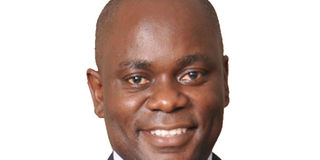Will the proposed tax measures improve service delivery?

Dr Muhumuza is a development policy analyst committed to inclusive growth.
What you need to know:
- Chaos theory provides for understanding of simple systems that change in a sudden, unexpected, or irregular ways – nonlinear dynamics. Small differences introduced to the current set of conditions can yield widely divergent outcomes that render it impossible to predict the long-term behaviour and results.
- This is not surprising knowing that Shs2.1 trillion of the Shs4.1 trillion released for April to June 2018 (51 percent), will go towards debt repayment. The rest of the money is towards allowances, gratuity and other forms of debt like domestic arrears and pension.
There was a big debate between the left and right lobes of my brain on whether to put the above as a statement of fact or question. My inclination was to state it as a fact given the certainty from history.
However, I decided to avoid the potential chaos of relying on the English language to communicate Economics, which is inherently chaotic and uncertain. Economists use a ‘wired’ branch of mathematics called “chaos theory” to try and understand the random behaviour of economic agents such as individuals and government.
Chaos theory provides for understanding of simple systems that change in a sudden, unexpected, or irregular ways – nonlinear dynamics. Small differences introduced to the current set of conditions can yield widely divergent outcomes that render it impossible to predict the long-term behaviour and results. This happens even when the system is deterministic, meaning that its future behavior can be fully understood and determined.
A scholar called Lorenz summarised chaos as “when the present determines the future, but the approximate present does not approximately determine the future.” In case you are not confused yet, and I pray you aren’t, just know that is how confusing your behaviour and that of government are confusing the economy, economics and economists.
There is so much chaos in the country that it is hard to determine what will happen when the proposed fiscal/tax measures are adopted.
Apart from taxing the Internet both at points of access and usage, there is a proposal to tax international calls at Shs330 per minute. Yet, thousands of Ugandans survive, not on only tax revenues, but by engaging relatives in the Diaspora to remit kyeyo money. It begs one to wonder whether these taxes are meant to raise revenue or block rumour mongering - lugambo.
Tax policy can be designed to do either or both of the above. My take is that using the Internet is more of a productive than a consumptive venture, and should be promoted.
It is also alleged that banning imports of cars older than eight years will trigger local vehicle manufacturing and save the environment. For the latter, it is better to ban charcoal burning and misuse of wetlands including planting eucalyptus on arable land. Alternatives sources of income exist. Otherwise, any sensible car manufacturer would stop the ‘stupid order’ to make cars in a country whose people are so poor that they cannot even buy hoes at Shs10,000 every two years, and need government to raise taxes for that purpose.
Finally, there is a proposal to raise Shs373 billion to provide monthly allowances of Shs25,000 per month or Shs800 per day to elderly persons. There are already about 154,000 beneficiaries who should not be called so given the worthless amounts involved.
Besides, reports indicate that more than 11,600 of the elderly who joined in 2016/17 – nearly two years ago – have not been paid!
This is not surprising knowing that Shs2.1 trillion of the Shs4.1 trillion released for April to June 2018 (51 percent), will go towards debt repayment. The rest of the money is towards allowances, gratuity and other forms of debt like domestic arrears and pension.
In such a chaotic situation of policy making and budgeting, it is only chaos theory that can determine whether the proposed fiscal measures will improve citizens’ welfare. The chaotic events from past and present decisions have made the budget unsustainable no matter the level of taxes.
Dr Muhumuza is a development policy analyst committed to inclusive growth.
[email protected]




